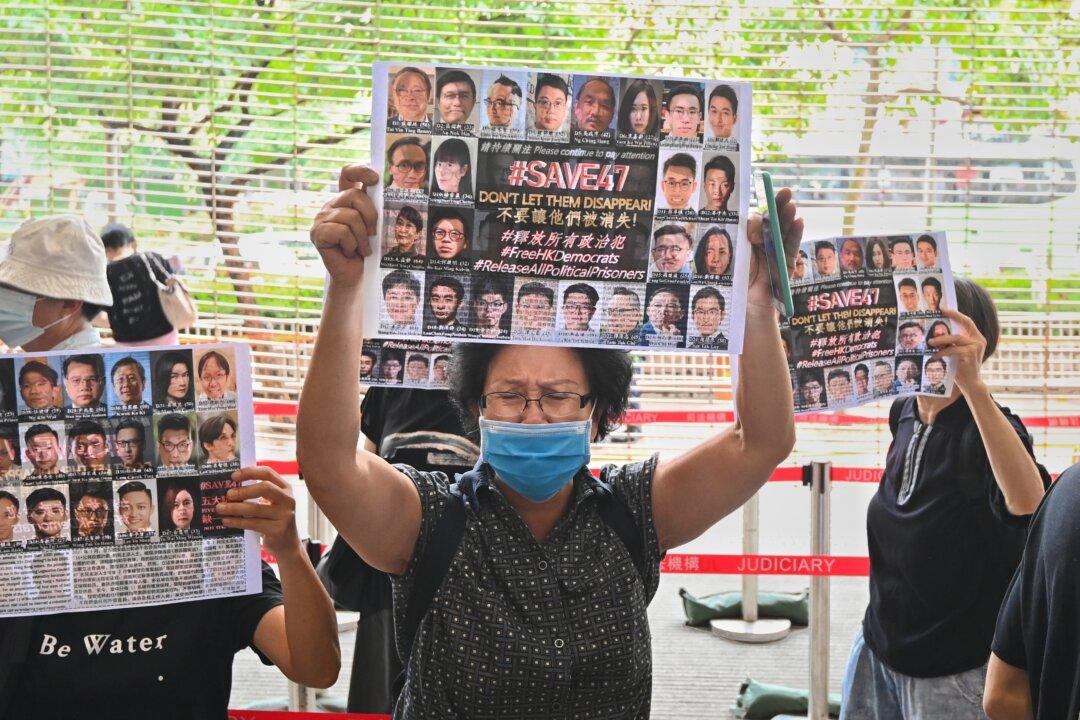The 47 Hong Kong pro-democracy opposition figures, who were charged with conspiracy to commit subversion under the city’s draconian national security law, may have their cases moved to a higher court where they could face heavier sentences.
At the West Kowloon court building on May 31, Judge Victor So ruled that the court case will resume on July 8, with the possibility that the case will be transferred to the High Court. The judge also rejected the bail application of one of the defendants—former district counselor Tiffany Yuen.





